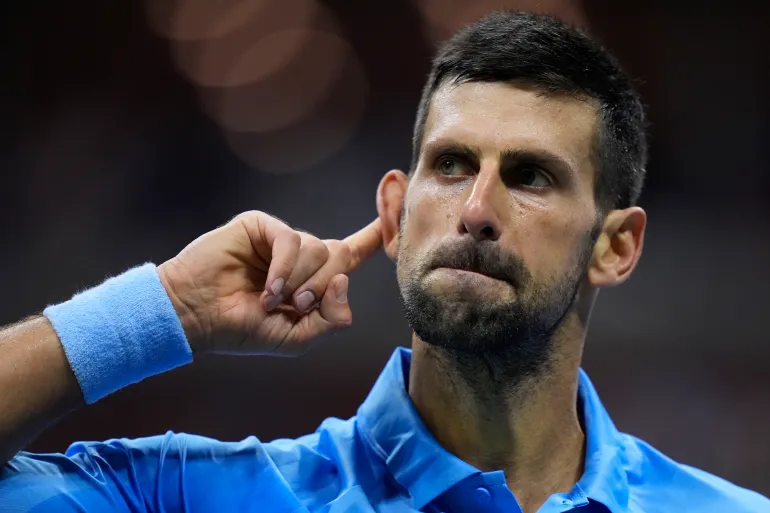
In a recent discussion surrounding Daniil Medvedev’s outburst during the Laver Cup, Andy Roddick weighed in with a compelling argument about the inconsistencies in tennis’s officiating and rule enforcement. Roddick specifically referenced the infamous default of Novak Djokovic at the 2020 US Open, asserting that Djokovic’s actions were far less intentional than Medvedev’s explosive reaction during the team event.
Roddick’s comments highlight a critical issue in professional tennis: the application of rules often seems arbitrary. Djokovic’s default stemmed from an accidental strike of a linesperson with a ball—an incident that many felt was a moment of frustration, not malice. The rules are designed to maintain safety and sportsmanship, but the consequences can appear disproportionate when a player’s intentions are taken into account. Roddick’s comparison points to a broader narrative in which players are held to strict standards of conduct, yet the interpretation of these standards can vary widely from one incident to another.
Medvedev’s incident at the Laver Cup, in which he unleashed a barrage of complaints about the officiating, sparked a fiery debate about the pressures athletes face and how they respond to those pressures. His emotional outburst was undeniably intense, but it also raised questions about whether players should be penalized for showing passion, especially in high-stakes situations like team competitions. Roddick suggested that Medvedev’s actions were a product of heightened emotions rather than a deliberate attempt to disrespect the game or its officials. This perspective invites a deeper conversation about how players are expected to conduct themselves under immense pressure.
The inconsistency in rule enforcement has long been a thorn in the side of players and fans alike. Roddick pointed out that while Medvedev’s response may have crossed a line, it pales in comparison to the circumstances surrounding Djokovic’s default, which many argued was excessively harsh. If a player unintentionally disrupts the match but is severely penalized, while another can express dissatisfaction and avoid repercussions, it raises questions about fairness and accountability in tennis.
Moreover, this inconsistency can have wider implications for the sport’s image. Roddick’s comments resonate with fans who seek a more equitable framework within which athletes operate. It underscores the need for a uniform standard of judgment that considers context and intent. In an age where mental health and emotional well-being are paramount, there is an increasing recognition that players are human, and their reactions—while they may stray from the ideal—often stem from genuine feelings of frustration and stress.
Roddick’s critique also sheds light on the role of the governing bodies in tennis, urging them to reevaluate how rules are applied and communicated. A clearer, more consistent approach could help mitigate confusion and frustration, not only among players but also for spectators who are trying to understand the rationale behind certain decisions.
In conclusion, Andy Roddick’s remarks on Medvedev’s outburst invite a necessary dialogue about the rules of tennis and their enforcement. By comparing this incident to Djokovic’s default, he highlights a significant inconsistency that could undermine the integrity of the sport. It’s crucial for tennis authorities to reflect on these issues, ensuring that the game remains fair and its players supported in navigating the intense pressures they face.
Leave a Reply